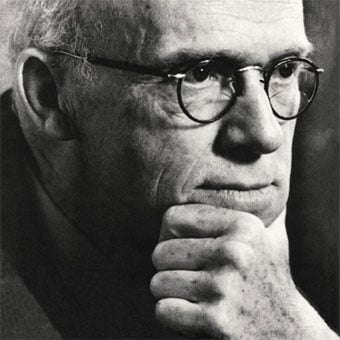
Walter Braunfels
Walter Braunfels has increasingly gained attention since the composer’s rediscovery in the 1970s * born in Frankfurt in 1882 as the fourth child of the lawyer and literary figure Ludwig Braunfels and the 32 years younger Helene Spohr, a great-niece of the composer Louis Spohr * after the father’s death, his mother nurtures his musical talent * first studies with Theodor Leschetizky (piano) and Karl Nawratil (composition) in Vienna, 1903 commencing composition studies with Ludwig Thuille in Munich * at the same time working as assistant to Felix Mottl at the National Theatre Munich who wields a profound influence on the young composer * 1909 successful performances of his Debussy and Berlioz inspired Symphonic Variations on an Old French Nursery Song in Lübeck, Dresden, Vienna, Berlin, and Munich * is drafted for military service in 1915 and converts to Catholicism after the traumatic experiences of World War I * his works are premiered by renowned conductors, such as Wilhelm Furtwängler, Bruno Walter, Otto Klemperer, and Hans Knappertsbusch * sensational success of his opera Die Vögel (The Birds) in the early 1920s * is appointed founding director at the Hochschule für Musik in Cologne in 1925 * during the Third Reich employment and performance ban imposed upon him by the Nazis * withdrawal into "inner emigration" * composition of several large-scale sacred works such as the cantata cycle for the liturgical year (Advent Cantata, Christmas Cantata, Passion Cantata, and Easter Cantata) * Braunfels’ late work is characterized by an elaborate orchestration, strict counterpoint, and a clear formal structure * 1945 return to the musical life as reappointed director of the Hochschule für Musik in Cologne * Walter Braunfels dies in 1954, shortly after completing his great stage work Das Spiel von der Auferstehung des Herrn op. 72 in Cologne
Works by Walter Braunfels include:
Offenbarung Johannes op.17 (1908) for tenor, mixed double chorus, and orchestra
Suite for Orchestra in E Minor op.48 (1933–36) for large orchestra
Symphonia brevis op.69 (1948) for large orchestra
